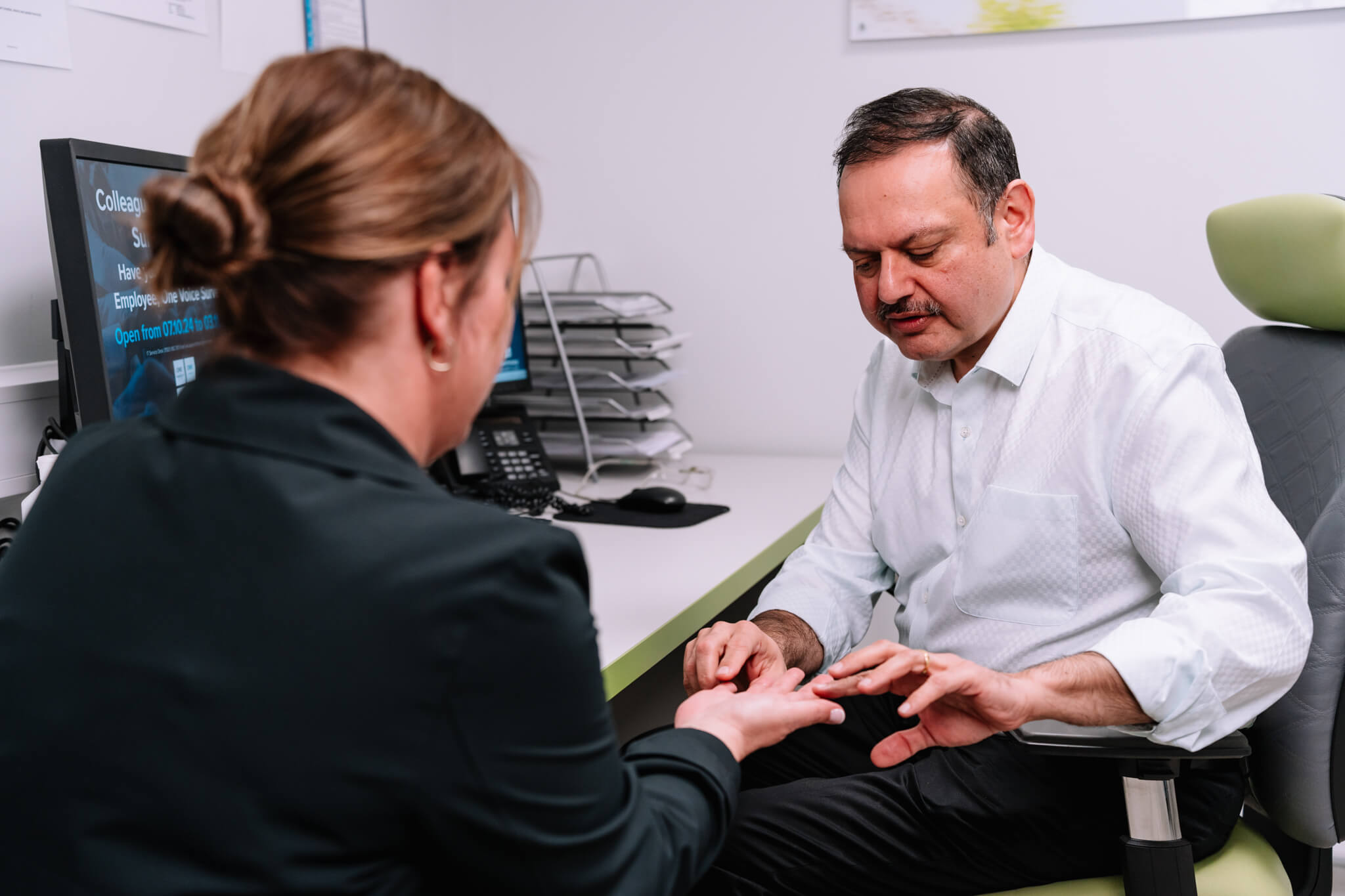Rivers Hospital Specialists
-
-
Mr Sanjay Agrawal
Mr Sanjay Agrawal is a Consultant in General Surgery & Weight Loss surgery in Hertfordshire . Certified Bariatic Surgeon of Excellence.
Read more -
Mr Howard Bradpiece
Mr Howard Bradpiece is a Consultant Breast and General Surgeon in Sawbridgeworth, Hertfordshire.
Read more -
Mr Rajaraman Durai
Mr Raj Durai is a General Surgeon with a special interest in Colorectal surgery in Sawbridgeworth, Hertfordshire.
Read more -
Mr Eriberto Farinella
Mr Eriberto Farinella is a Consultant General Surgeon in Hertfordshire
Read more -
Mr Vivek Gupta
Mr Vivek Gupta specialises in general and colorectal surgery including hernia, cholecystectomy, colonoscopy, haemorrhoidectomy, IBS, and bowel cancer.
Read more -
Mr Bogdan Ivanov
Mr Bogdan Ivanov is a Consultant General Surgeon in Sawbridgeworth, Hertfordshire
Read more -
Mr Jonathan Refson
Mr Jonathan Refson is a General Surgeon in Hertfordshire with a special interest in vascular surgery
Read more -
Mr Mrinal Saharay
Mr Mrinal Saharay is a General Surgeon in Sawbridgeworth, Hertfordshire.
Read more -

Mr Abdul Syed
Mr Abdul Syed, Consultant Breast and General Surgeon in Sawbridgeworth, Hertfordshire who specialises in the diagnosis and management of breast cancer.
Read more -
Ms Vardhini Vijay
Ms Vardhini Vijay is a Consultant General Surgeon in Hertfordshire specialising abdominal surgery, cholecystectomies, adhesiolysis, hernias, gastroscopy and colonoscopy.
Read more -


